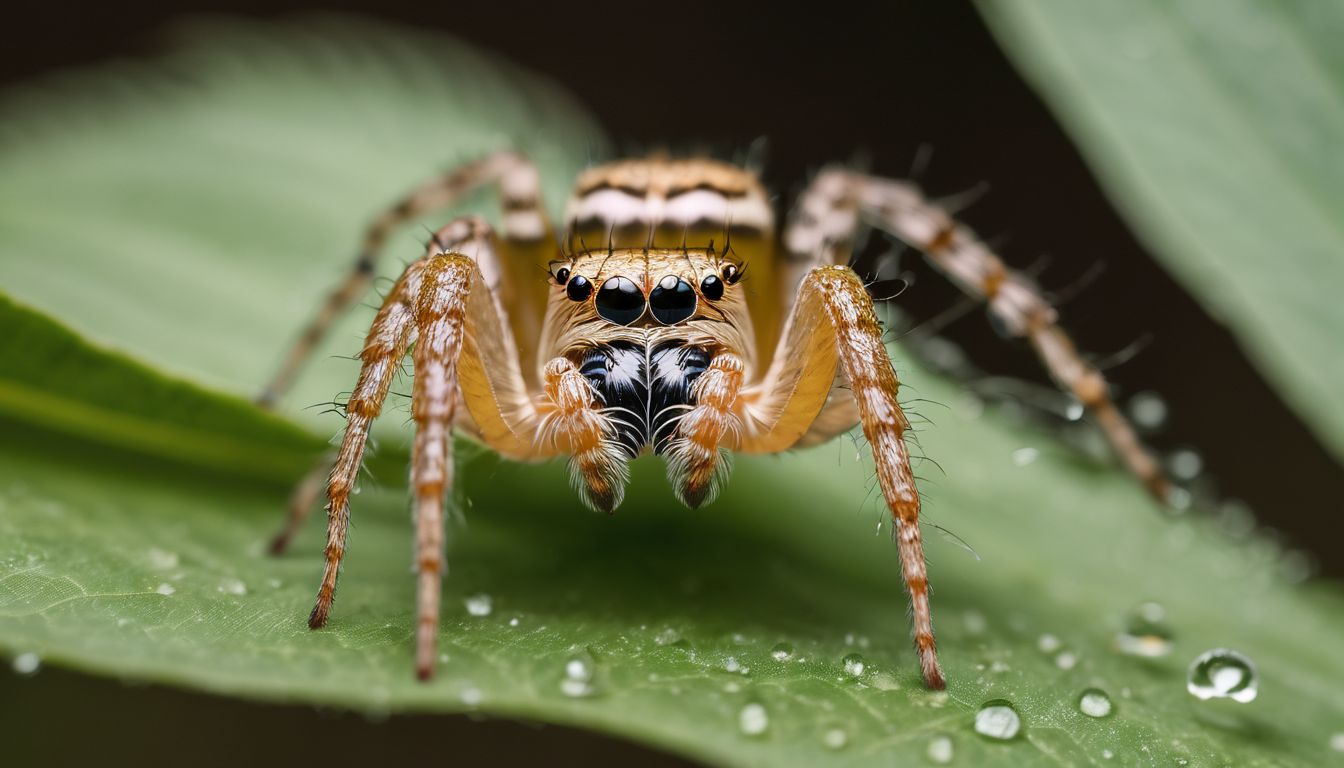Are you curious about the water needs of spiders? Have you ever heard myths related to their need for water? Spiders, like all living creatures, consume and need water for survival.
Though they primarily get their moisture from what they eat – sometimes including liquids – spiders can also drink direct sources of fluids such as dew or condensation. In this post, we will uncover in detail all there is to know about how these fascinating creatures meet their hydration needs and debunk some common misconceptions along the way! Join us for an exploration into the mysterious world of spider’s thirst quenching habits and find out why it is so important that they stay hydrated!
Key Takeaways
- Spiders do need water for survival and get it from sources such as dew drops, small puddles of water, liquids from their prey, or even by producing new sources through web watering.
- The frequency of drinking water for spiders depends on the species and environmental factors like climate and habitats while some can go up to two months without any liquid intake at all.
- It is important to maintain optimal humidity levels around gardens or when keeping them as pets in terrariums; fresh clean lightly treated drinking-water should be provided regularly for hydration purposes whatever environment they live in!
- There are many misconceptions about spiders and water that can be damaging to spider populations; it is essential to dispel these myths so we better understand how we can foster appreciation for these fascinating creatures!
Do Spiders Drink Water?
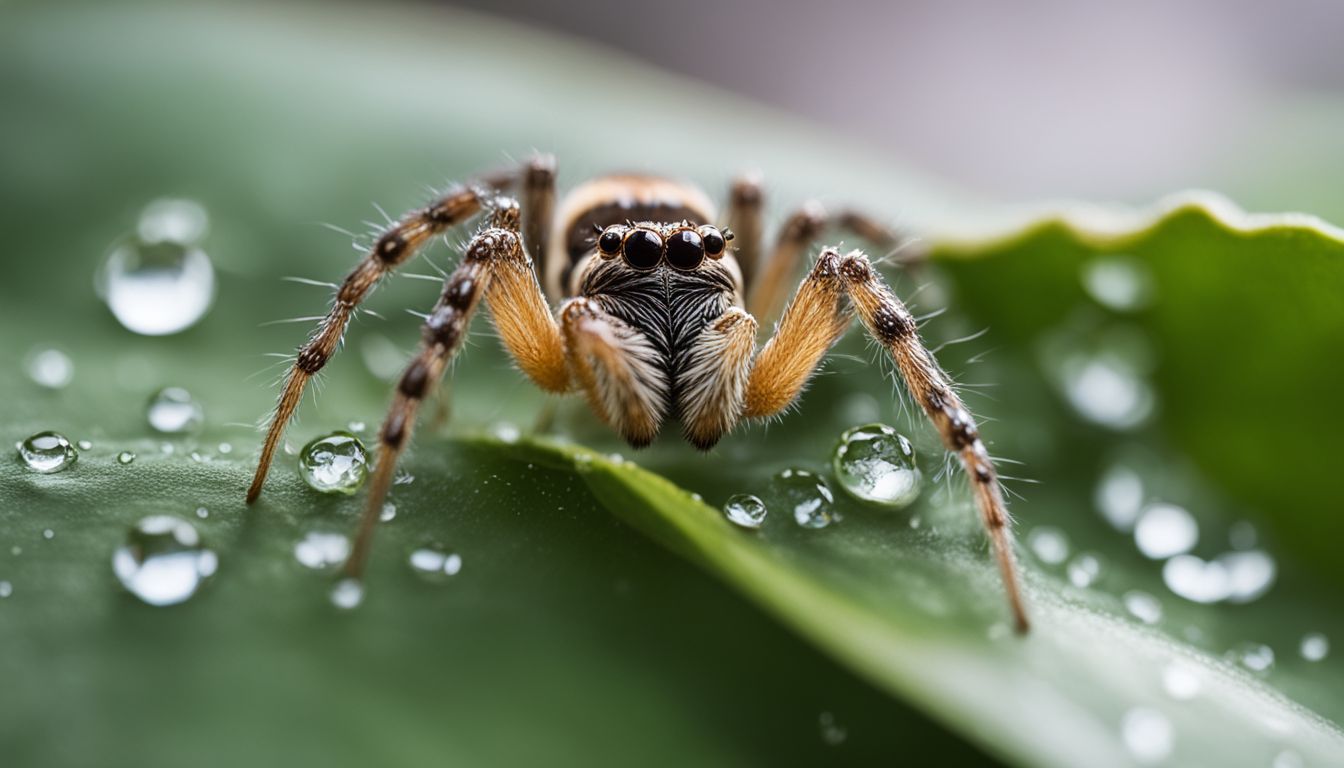
Contrary to popular belief, spiders indeed have the ability to drink water.
How Spiders Drink Water
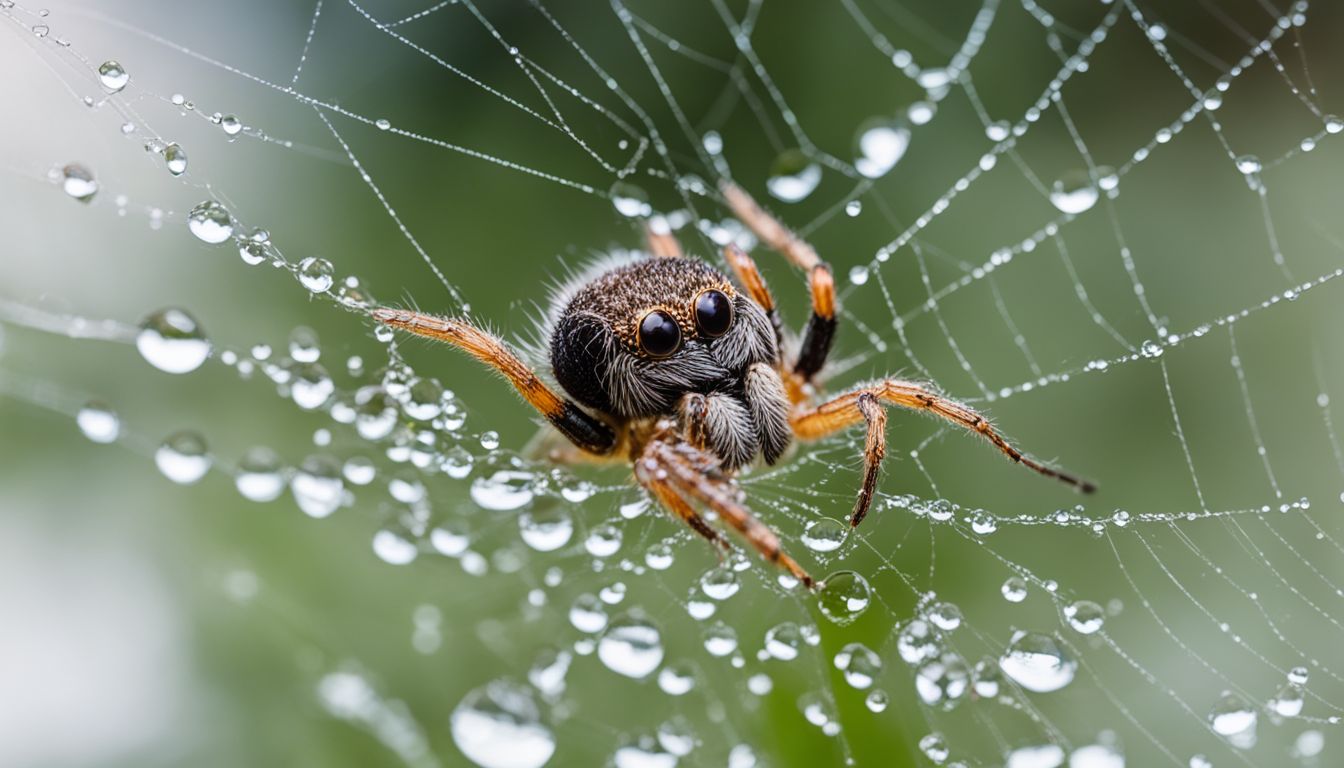
Spiders are experts at hydrating themselves through small sips from dew drops, tiny puddles of water, and the water droplets that form on their webs. To consume water this way, spiders have developed several adaptations.
They use their legs as straws to drink up the liquid particles in mid-air while doing a dance-like maneuver or “spider rain dance”. Tarantulas also lick up water droplets using their strong forelegs which act like absorbent sponges.
Spiders may also take advantage of surface tension by forming pockets between some of its body segments where it can then suck out available moisture deep within each drop. In addition to consuming existing sources of moisture, creative spiders can actually produce new source for hydration by removing granules or fine dust from plants and leaving them diluted into collected pools or steaming masses on warm road surfaces due to radiant warmth generated during hot days.
Water Sources for Spiders
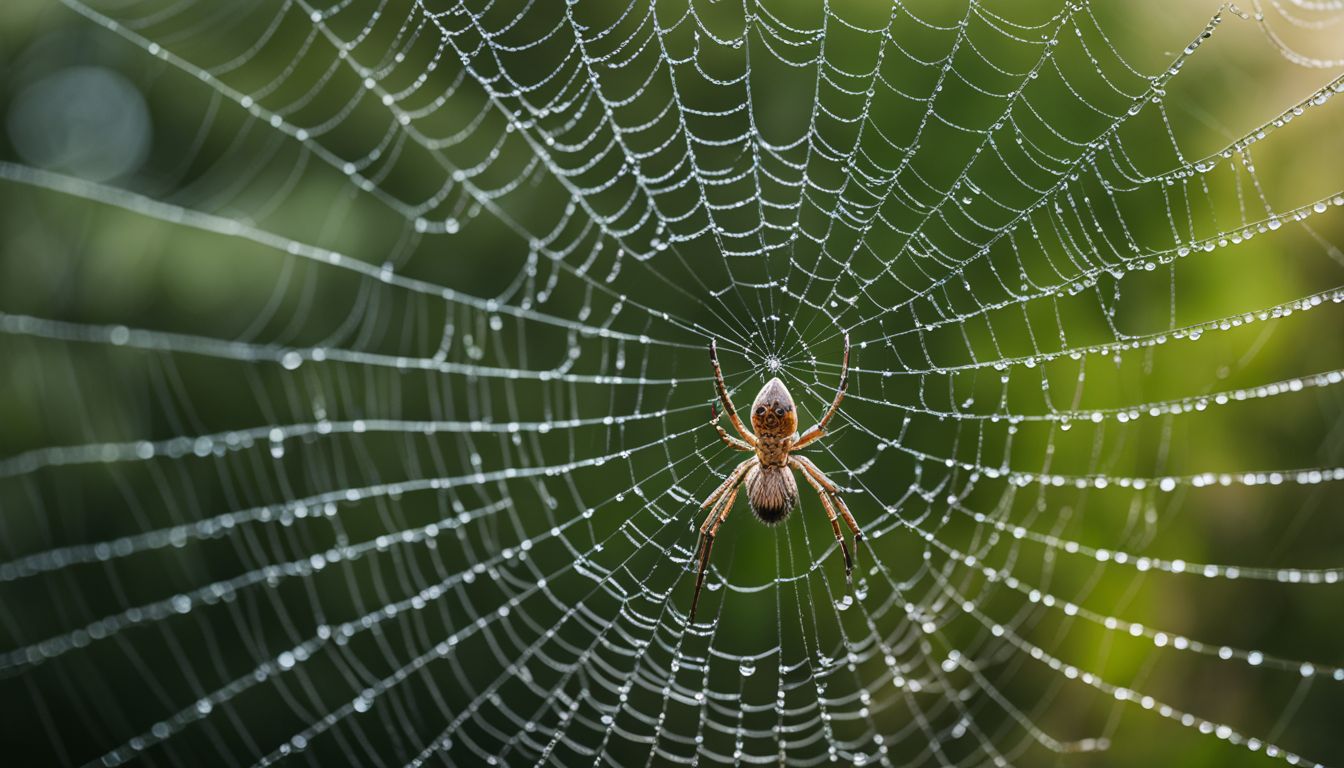
Spiders can get water from a variety of sources in the wild. The most common modalities are through morning and evening dew, their webs or leaves and stones present in their environment.
Morning and evening dew provide a reliable source for spiders to drink moisture out of the air that has condensed on surfaces such as soil, legs or bodies of other animals, every morning before sunrise.
Spiders will then wait patiently for the sun’s rays which dry up any collected droplets so they can again collect new ones during sunset. Additionally, accumulated puddles from regular rain showers offer an ample supply for these arachnids to drink water from — On especially wet areas like woodlands where foliage is abundant and dense, it may even be possible spiderwebs may have trapped enough water that they don’t need to actively seek other sources.
Furthermore, if there are several vegetation around them such as leaves and stones due to natural fauna presence – these creatures will also crawl over these elements with purpose as some might hold more moisture than others providing adequate hydration needs over time – worth noting all this becomes exponentially easier when spiders find themselves inside terrariums where glass front provides direct access liquid droplets off windows enabling easy drinking sessions without further hunting efforts.
Water Consumption of Spiders
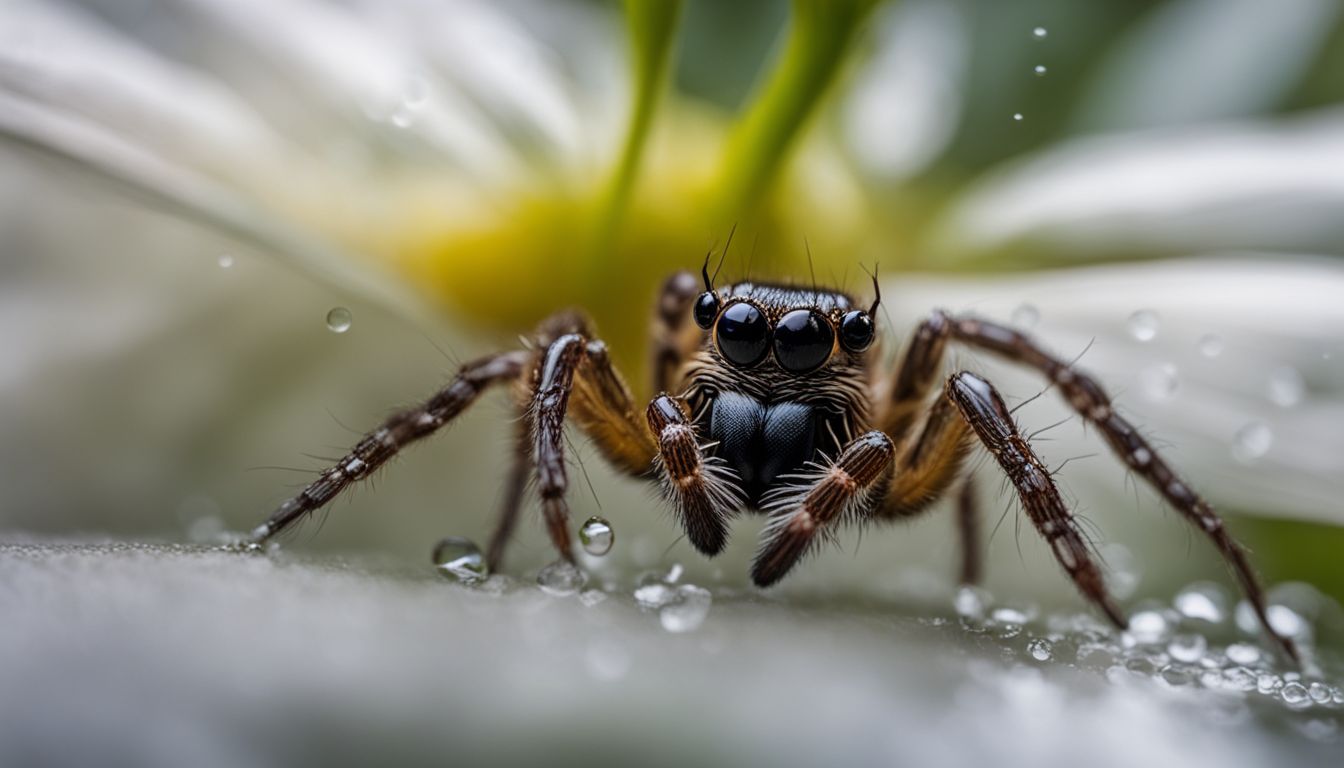
Spiders typically drink small amounts of water when needed, and the frequency varies depending on many factors such as climate, habitat and other environmental conditions.
Frequency of Drinking Water
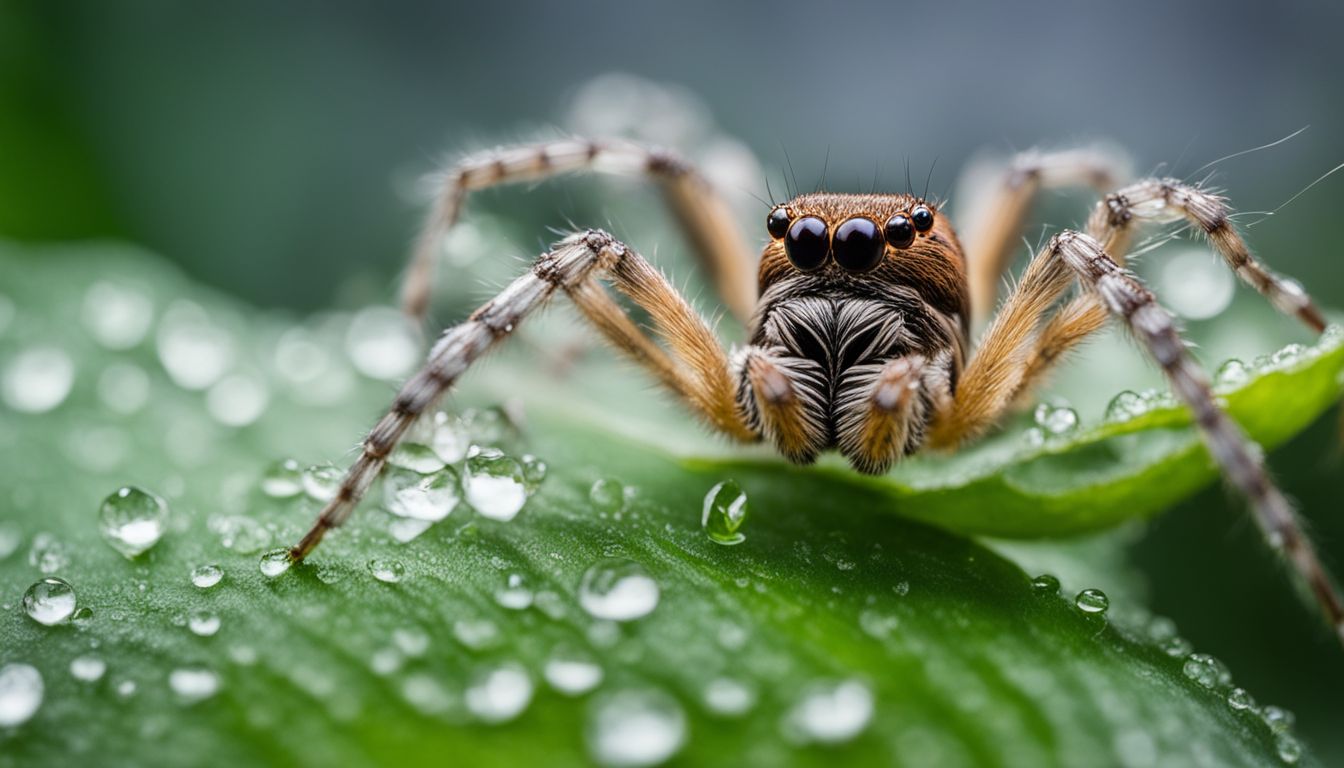
The frequency of water drinking for spiders varies, as it depends on the species and environment. Some will drink occasionally from dew or rain in their natural habitats, while others are able to obtain moisture from prey (particularly insects) when available.
Spiders have a remarkable ability to survive with limited access to water;some can last up to two months without any liquid intake. However, if they do come across sources of moisture such as puddles or soil containing some form of humidity, then spiders may consume this immediately.
Overall there is no specific rule that applies all spider species since they vary depending on factors like area and availability of food/water resources.
Duration Without Drinking Water
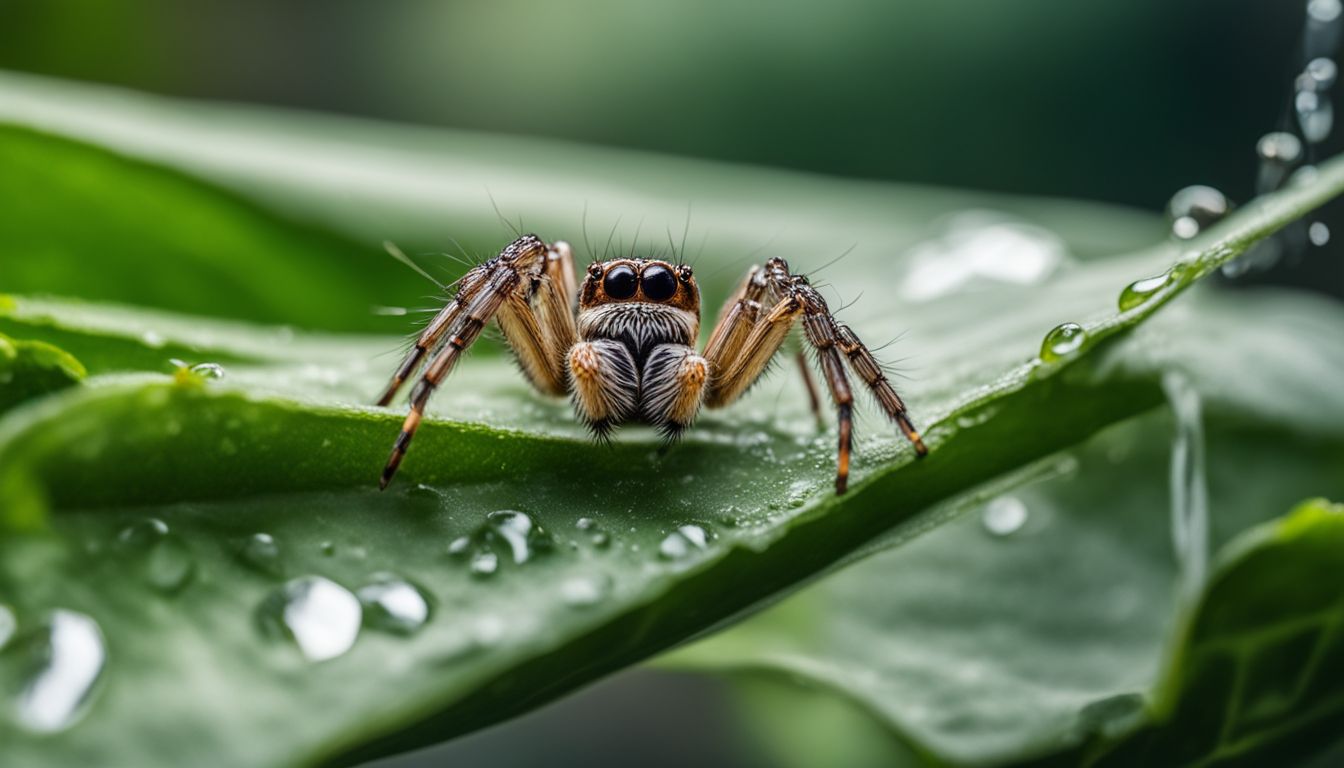
Spiders can survive a reasonably long time without water—up to 8 weeks on average. However, this timeline varies greatly depending on the species of spider and the external conditions it is facing.
For instance, small jumping spiders that are more active will need access to fresh water every day if they want to survive over longer periods as they can quickly become dehydrated due to evaporative loss from their exoskeletons.
Tarantulas actually drink water through their mouths located behind their fangs! They may spend several minutes drinking in order to fully hydrate themselves since they consume water slowly compared to other animals like humans or dogs.
An interesting fact is many people don’t know where their drinking-water comes from and often face environmental risks such as droughts or contaminated sources, leading some areas of the world with very limited access to clean drinking-water for both humans and wildlife including spiders.
That’s why accessibility of healthy environments with enough access to safe drinking-water must be part of any conservation plan when aiming at preserving different species of spiders.
Debunking Myths About Spiders and Water
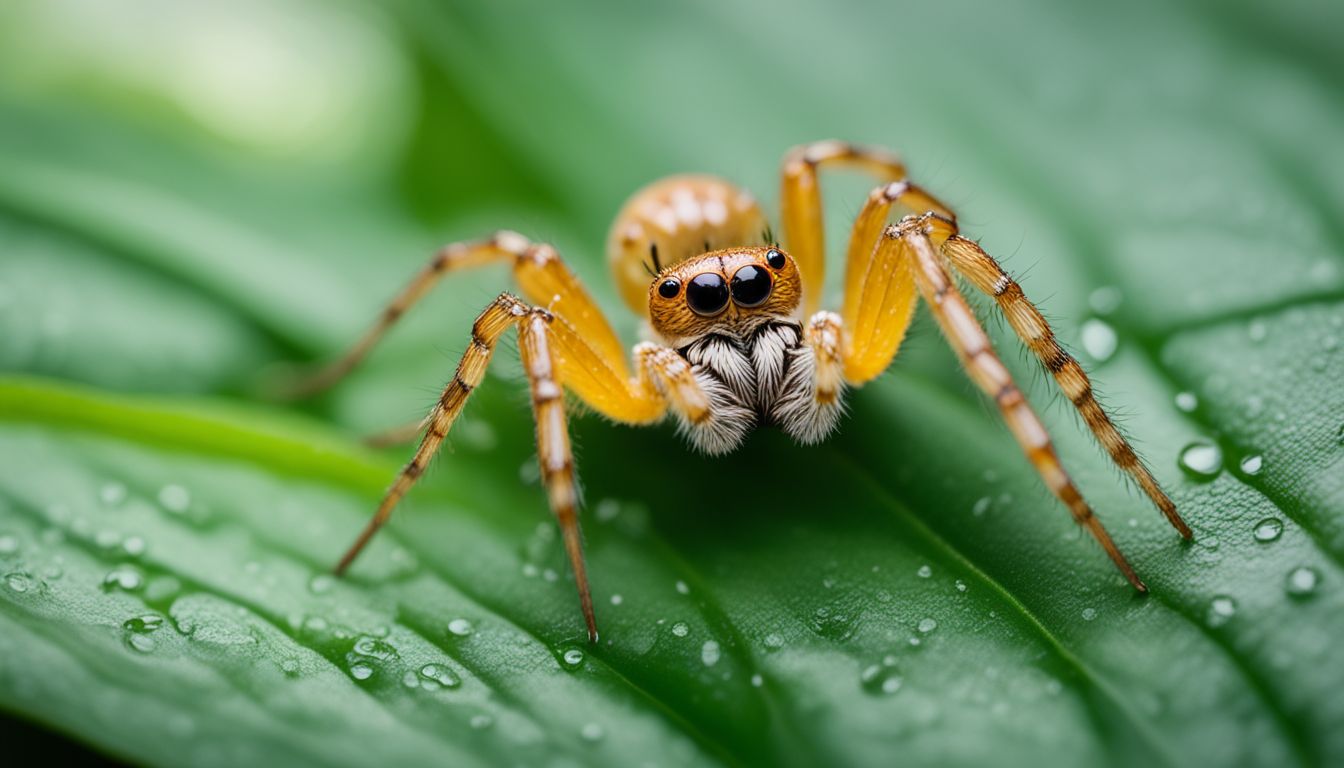
Through examining research, we can debunk common myths about spiders and their relationship with water to gain an accurate understanding of the importance of this issue.
Common Misconceptions
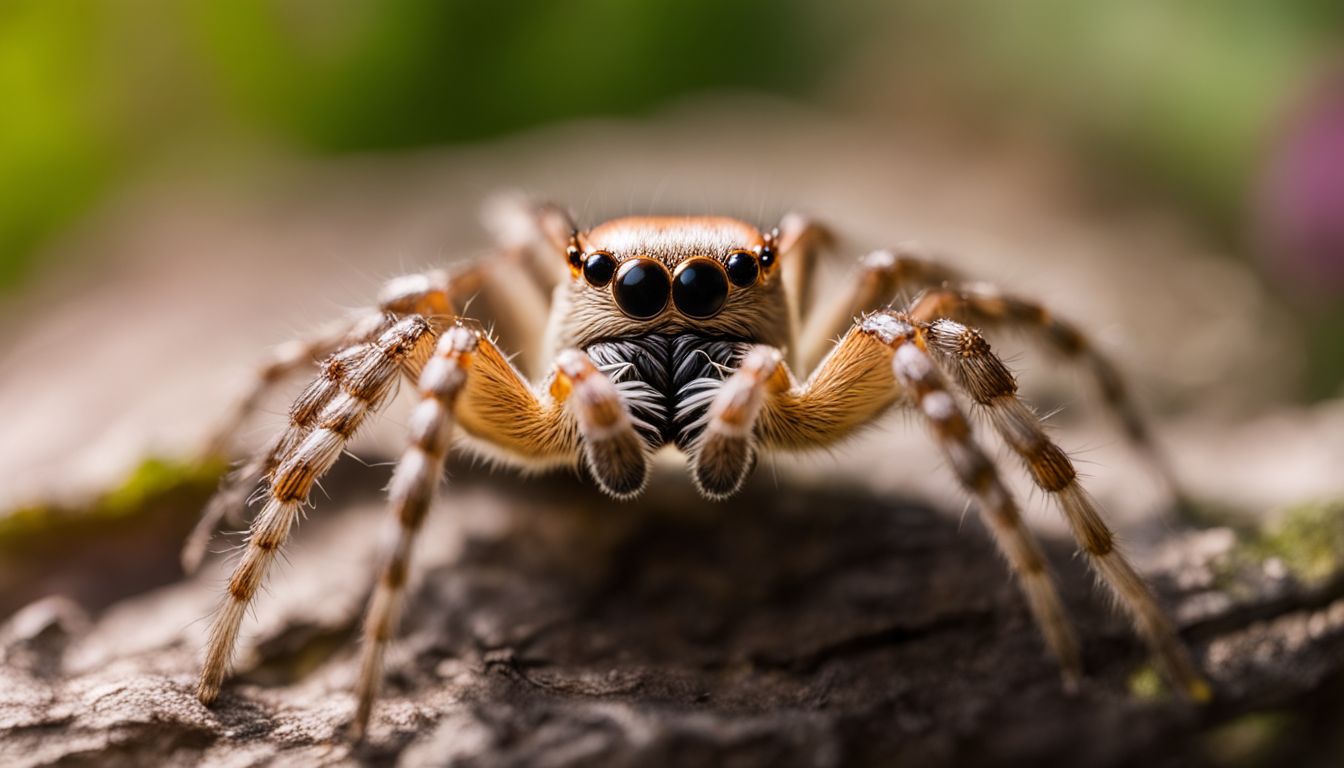
Many people are aware of the myth that spiders routinely enter our sleeping bodies and lay eggs, but this is just a story. In reality, no spider intentionally enters a person’s body nor does it lay eggs.
- Spiders need water in order to survive – This is false. While it is true that some spiders live on or around water sources such as ponds and streams, not all do; some prefer a drier habitat like deserts or grasslands.
- Spiders bite humans and animals deliberately – Contrary to popular belief, spiders do not bite humans out of aggression unless they feel threatened or are trying to protect themselves from being harmed; most bites occur while humans are asleep and their skin comes into contact with the spider’s body parts inadvertently.
- All spiders spin webs – It is often assumed because of the popularity of web-spinning spiders like the Black Widow that all spiders make webs; however, not all species do; jumping spiders don’t need webs for hunting as they jump onto their prey instead!
- All spiders have venom – While it is true that some species use venom for hunting and self-defence, not every species does; tarantulas have weaker venom compared to other species while jumping spiders have very weak venom if any at all!
- Spiders exist only in dark places – Contrary to popular belief, there are plenty of species which live in light filled areas such as meadows during the day and hide away in crevices at night for safety reasons!
The Importance of Water for Spiders
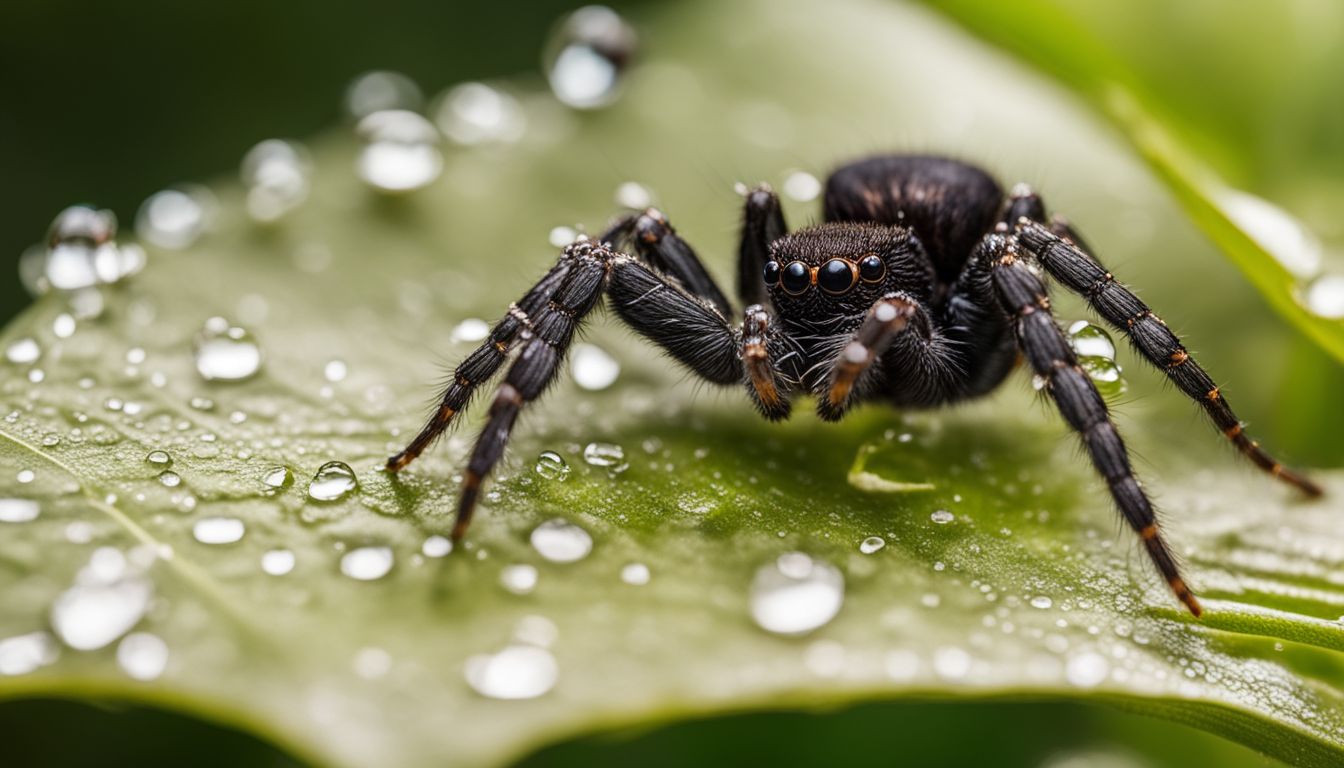
Spiders require water to survive and stay healthy just like other animals. Water is important for their bodily functions such as digestion, reproduction and immune systems. Without it, they could become dehydrated which can have a detrimental impact on their health and increase the likelihood of death.
Spiders don’t typically seek out drinking water; however, they do obtain water through various sources such as dew drops on plant life or by trapping moisture in web-like structures (or osmotically absorbing it).
Although consumption rates are low among spiders due to their size and lack of body weight (they need less), given environmental conditions increased liquid intake can help them thrive.
In general, good humidity levels with access to clean water source will benefit spiders a great deal in terms of keeping them nourished and hydrated at all times.
Conclusion
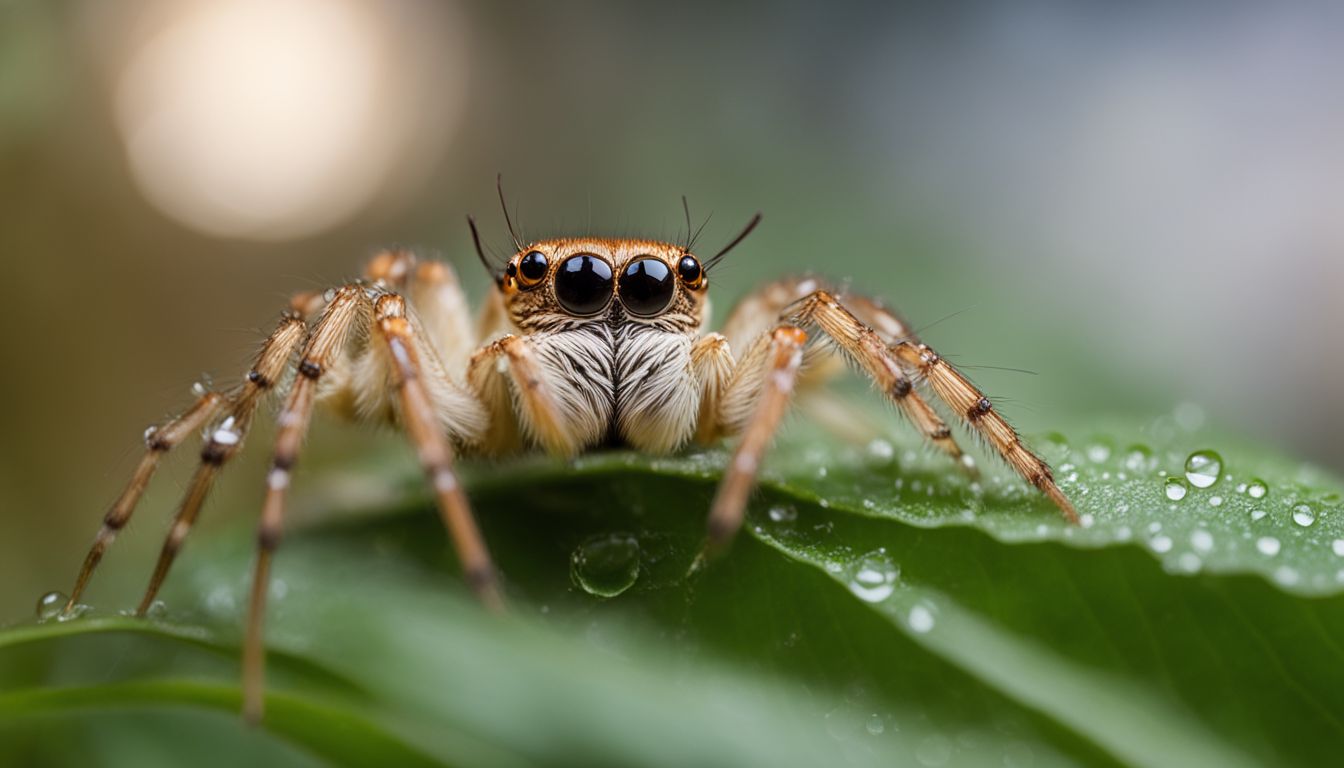
Overall, spiders absolutely need water to survive. While they get ample liquid of any kind from the insects and other prey that they consume, house spiders and some others also drink liquids, including water itself.
When their primary source of nutrition dries up or if its distance from a water source is too far for them to travel every day for hydration, jumping spiders in particular can quickly become dehydrated.
That’s why dispelling myths about how and where spiders do or don’t access sources of freshwater is crucial as it leads us to protecting these essential creatures’ well-being in our homes and beyond.
In short, understanding a spider’s critical need for water not only sheds light on their behavior but gives us an opportunity to better care for our eight-legged friends – all while helping them thrive!
FAQs
1. Do spiders need water to survive?
Yes, spiders do need water to survive as they can become dehydrated without it.
2. How do spiders get their water supply?
Spiders obtain most of their water supply from the food they eat and also through condensation in moist areas like tree bark or leaves. They may also drink water droplets off surfaces when possible.
3. Are some spiders adapted to life without much access to water?
Yes, some spider species are adapted to living in extremely dry habitats with very limited access to fresh drinking water and rely on moisture in food for hydration instead.
4. Can spindryness lead a spider’s death?
Yes, dehydration can cause serious health problems for some spiders and even lead to death if left untreated for an extended period of time.

